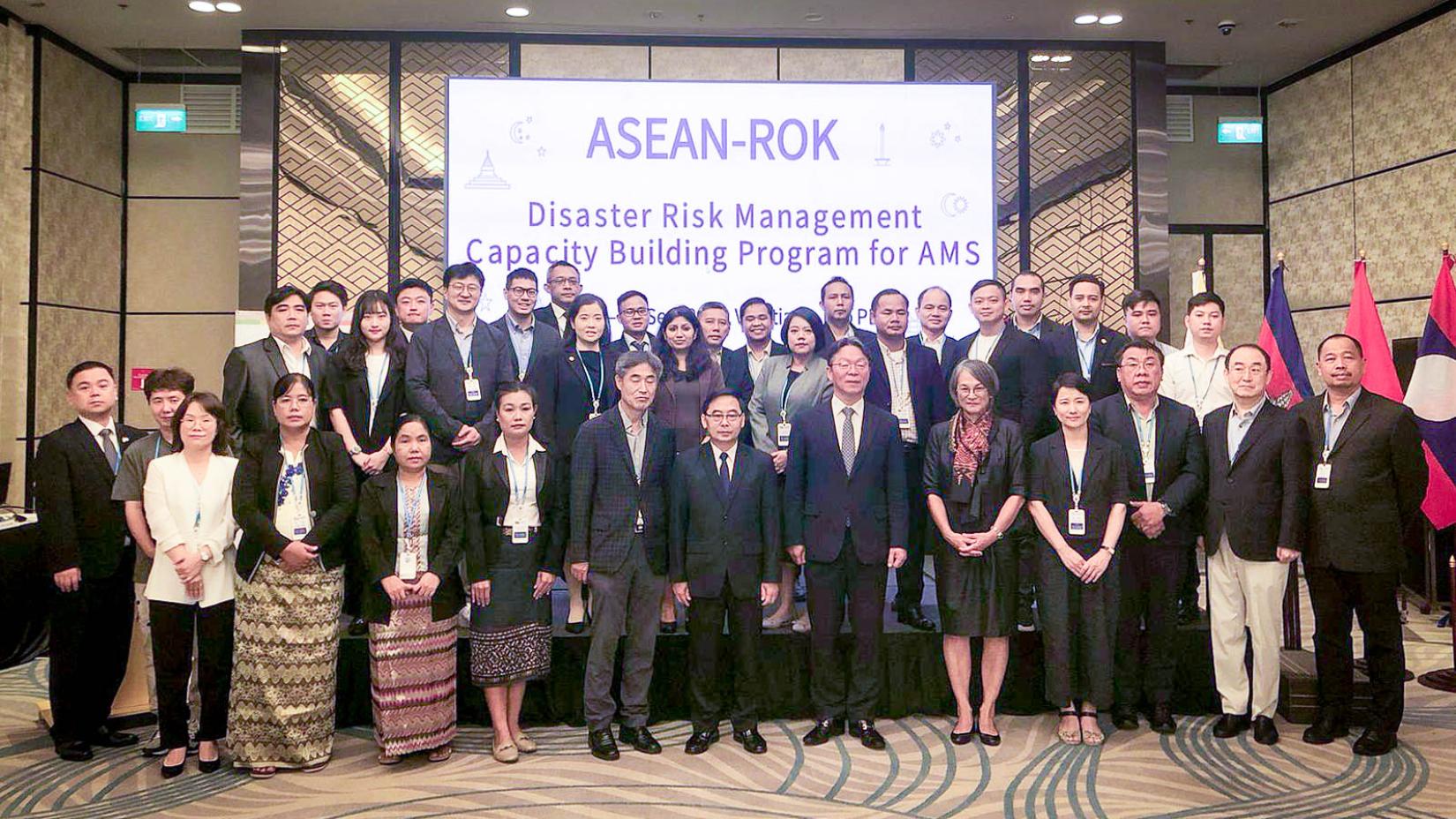Opening Remarks at 10th Disaster Risk Management Capacity Building Program for AMS
Opening Remarks at 10th Disaster Risk Management Capacity Building Program for AMS

Resident Coordinator a.i.
5-8 September 2023 (Vientiane, Lao PDR)
Crowne Plaza Hotel
Honorable Deputy Minister, Mr. Leepao Yang, Ministry of Labour and Social Welfare, Lao PDR,
His Excellency JEONG Yeong-su, Ambassador of Embassy of Republic of Korea in the Lao PDR,
Mr. KIM Yeong-seong, Director of the National Civil Defense and Disaster Management Training Institute (NDTI),
Distinguished representatives from the 10 ASEAN Member States,
A warm welcome to all of you.
On the behalf of the United Nations in Lao PDR and in my capacity as the Resident Coordinator acting in-charge, I am honored to deliver the opening remarks at this very important training. Allow me to extend my appreciation to the Ministry of Labour and Social Welfare (MoLSW), Lao PDR and the National Civil Defense and Disaster Management Training Institute (NDTI) of the Republic of Korea for organizing this training that brings together 21 national disaster management government officials from the 10 ASEAN Member States to share knowledge and experience and learn from each other.
The ASEAN is among the most disaster-prone regions in the world, with floods, landslides, tropical storms, tsunamis affecting millions and displacing thousands of people. With climate change, the scale and frequencies of natural hazard events are rising, with the ever increasing need to prepare for, respond to and recover from disasters, as well as prevent and anticipate hazard risks.
Over the course of the next three days, I am sure you will learn both policy and practice of disaster risk management, exchanging good practices and lessons learned and exploring ways of strengthening collaboration with each other. Allow me to share three important points for your consideration:
- We may not always be able to prevent natural hazards, but we can prevent them from becoming disasters. Disaster management laws and policies, preparedness measures and coordination between Ministries and key stakeholders, contingency planning and early warning – all can help avert major crises and minimize damage and loss. The recent tropical storm off the coast of Florida is an example of how early warning and timely evacuation saved the lives of millions.
- Just as timely response can save lives, investing in recovery can save livelihoods. I would like to commend the ASEAN Member States that have set up robust response mechanisms and systems to provide rapid and effective response immediately after a disaster event. Coordinated support to medium- and long-term recovery, especially in large scale disaster events, is also important to ensure that people have access to basic services, that livelihoods are restored and that the needs of the most vulnerable – women, children, the elderly, people with disabilities, ethnic groups, migrants - are met. There are good examples from countries like Indonesia and the Philippines that are faced with multiple natural hazard events and have institutionalized recovery assessments and planning.
- Reducing risks and building resilience must go hand in hand. Building resilient countries and communities requires investments in disaster risk governance, adoption of disaster resilient technologies and capacity building of vulnerable communities and local government who are often the first responders. Initiatives such as the UN Secretary-General’s Early Warning for All, which we are also implementing in Lao PDR, can be crucial in reducing loss and damage and building resilience.
At the global level, the Sendai Framework for Disaster Risk Reduction provides the overarching framework, and I would like to congratulate the ASEAN Member States for adopting this framework into the ASEAN Agreement on Disaster Management and Emergency Response (AADMER) Work Programme. Disaster events are by nature trans-boundary, flooding of the Mekong alone affects not just Lao PDR but several countries upstream and downstream. Cooperation and collaboration between the ASEAN countries is critical to protect the lives of the people whose lives and livelihoods depend on the river.
In conclusion I would like to share that the UN in Lao PDR is committed to supporting the national Government’s commitments on climate change adaptation and disaster risk management and welcomes the opportunity to engage with the ASEAN countries to strengthen risk governance and resilient development.
I wish you a successful training. All the best and thank you.









